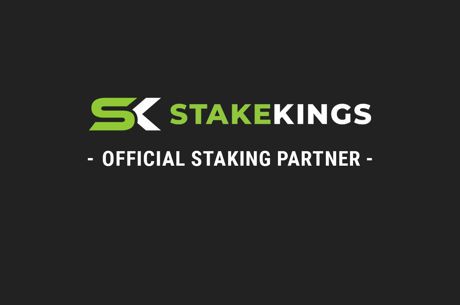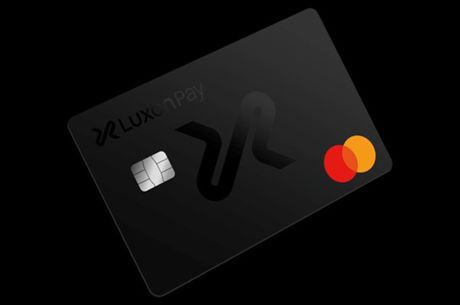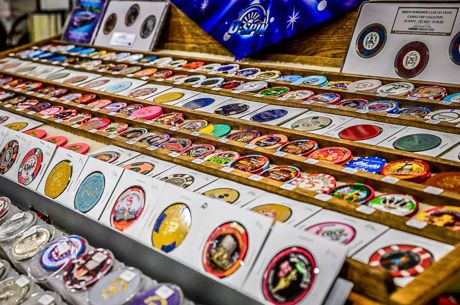Inside Gaming: PokerStars Ads Illegal in New Zealand, Titan Gets French License and More

With Senate Majority Leader Harry Reid's recent push for the legalization of online poker, it's easy to overlook other newsworthy poker stories. Luckily, Inside Gaming has you covered. This week we take a look at Titan Poker introduction to the French market, the abrupt exit of eWalletXpress from the United States, and PokerStars' advertising woes in New Zealand at the height of the Asian Pacific Poker Tour.
Titan Poker Gains French License
The French gaming market is continually expanding, and this week Titan Poker, one of the largest members of the Playtech-owned iPoker network, received a license to operate in France from the French Regulatory Authority of Online Games. Titan Poker will operate under titanpoker.fr and serve as a major boost to the French iPoker network, which had previously held a small foothold in the market.
The iPoker.fr network initially included Chili Poker and recently added land-based casino groups JOA, Groupe Tranchant and Casino du Golfe. The addition of Titan, one of its major rooms, is viewed as a significant move in the French online poker scene.
“Getting our poker license will be a new stage in the process of expanding competition in the French market for gambling and Internet gambling,” said Benjamin Issembert, President for Titan.fr owners The Nation Traffic. “With over ten years of experience in the industry, we are confident beyond any shadow of a doubt that we will succeed in competing with the current leaders in the French poker market and will hold a place in the heart of French players.”
In addition, Titan.fr. released a statement saying “Former TitanPoker.com players will receive excellent conditions for resuming their activity on Titan.fr while new members will receive particularly lucrative promotional offers. All Titan.fr players, both new and old, can expect tempting bonuses, tournaments, freerolls and a generous VIP programme.”
For more on Titan Poker and the iPoker network, visit .
eWalletXpress Out of the United States
Federal law enforcement recently served a warrant in the U.S. to online payment processor eWalletXpress, and as a result, the company said it will no longer service U.S. customers. The announcement did not come as much of a surprise; rumors had surfaced weeks ago after the presence of eWalletXpress began to decline on U.S.-targeted gaming sites.
The Canadian processor initially attributed its decision to “technical issues,” but later released a statement to its U.S. customers explaining their move: “We regret to inform you that we are no longer able to continue service at this time due to a Federal warrant issued to seize our funds,” the statement said.
For those with funds remaining in their eWalletXpress account, a request for the monies to be transferred to customers’ checking accounts can be made after “technical issues are resolved.”
More on the eWalletXpress announcement can be found at .
New Zealand Rules Against PokerStars
This week, the South Pacific seems to be a hotbed for poker. Not only is Team PokerNews live in Australia to capture all the action from the 2010 APPT, but a New Zealand high court recently ruled that advertisements for the APPT, sponsored by PokerStars, is against the country’s gambling laws because it promote overseas gambling in direct violation of New Zealand’s 2003 Gambling Act.
An initial decision by an Auckland district court found the APPT ads were not illegal, but the New Zealand regulatory body appealed that decision. The district court’s decision stemmed from a case brought by the New Zealand Department of Internal Affairs against TV Works for running APPT commercials on its TV3 and C4 channels. In that case, the court found the ads did not promote overseas gambling because the APPT was structured around a prize.
Unfortunately for the APPT, that decision was overturned by New Zealand’s high court late last month. Although many players enter the APPT by winning on PokerStars.net, the free-play poker site, the court learned that others bought their way in directly. Because that money is used in the prize pool, the court found that the tournament does in fact constitute gambling, and by association the ads are illegal.
In the ruling, the judge Ronald Young said: “Although some contestants qualify to play by skill rather than the payment of an entry fee, those who do pay are gambling. Thus what is advertised is still gambling even if not all contestants are gambling.” He went on to say, “Here the entrance fee in part makes up the prize pool which is shared by the top ten players. The number of chips won during the tournament reflects the players placing and thereby his/her prize money.”
Young continued: “The entrance fee is therefore the payment of money which is indirectly staked on the outcome of the poker game trying to win money in a game depending partially on chance.”
While the ads violate section 4 of the New Zealand Gambling Act 2003, Young admitted the legislation surrounding this is unclear. While damages will be levied against TV Works, Young urged that the legislation’s unclear nature be taken into account in the decision. “I have considerable sympathy for the position the respondent found itself in,” he said. “The legislation is far from clear and others have thought the respondent was acting lawfully. The respondent proceeded with the advertisements genuinely believing it was acting lawfully.”
More on this story can be found at . The APPT Sydney kicks off this week, so be sure to follow all the action brought to you from our live reporting team.
For the whole PokerNews experience, be sure to on Facebook and on Twitter.








